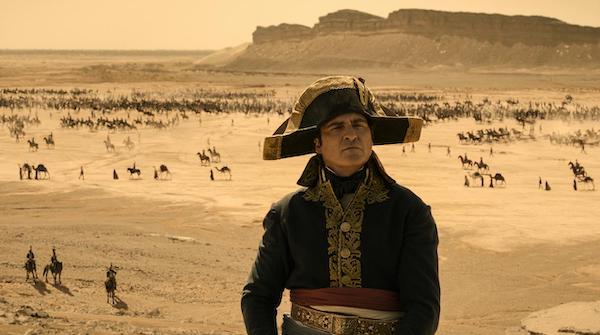
Ridley Scott’s latest historical epic, Napoleon, charts the tumultuous life of France’s infamous emperor. Starring Joaquin Phoenix (Oscar-winning star of Joker, and Scott's very own Gladiator) as Napoleon Bonaparte himself, and The Crown’s Vanessa Kirby as his wife, Josephine, the film promises to deliver jaw-dropping battle scenes as well as intimate explorations of a marriage doomed to explode.
Following the life of a figure as complex as Napoleon, the film certainly won’t be short of dramatic moments to explore. Scott is renowned for his ability to construct living, breathing historical worlds on the big screen, from The Duellists to Gladiator and Kingdom of Heaven, and Napoleon promises to be as breathtaking as those acclaimed efforts.
Ahead of the film's release, here is your essential guide to Napoleon Bonaparte himself.
Who was Napoleon Bonaparte?
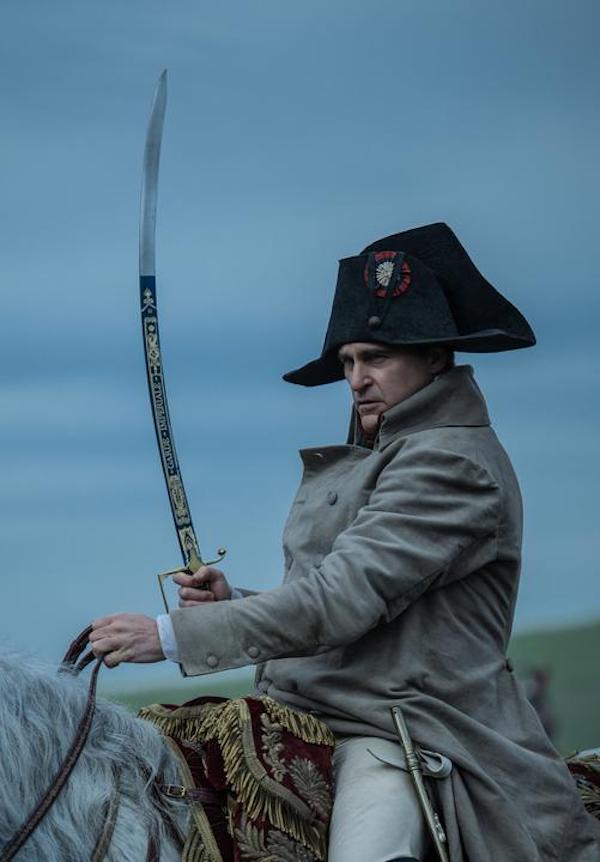
Although Napoleon would rise to become one of history’s most famous figures, he came from humble origins. Born on August 15th, 1769, on the island of Corsica, his parents were minor nobles – but that didn’t mean he lived a life of luxury. Instead, he was packed off to French military schools on scholarships and made fun of by his wealthier classmates, who poked fun at his accent.
However, he was an excellent student, with a particular knack for military strategies. At age 15, he enrolled in a first-class military academy in Paris, ready to learn the art of war. But his life was turned upside down when his father died of stomach cancer in 1785, making the teenage Napoleon the head of the family.
Shortly after turning 16, he was made a commissioned officer – and the arrival of the French Revolution supercharged his military career. Lasting from 1787 to 1799, this revolution overturned French society: the monarchy was abolished, and King Louis XVI and Marie Antoinette ultimately lost their heads to the guillotine, along with thousands of others.
As well as being a time of terror, the period also presented great opportunities to ambitious individuals like Napoleon. In 1796, he was promoted to become commander of the French army in Italy, after he helped stamp out a royalist rebellion in Paris.
What were some of Napoleon's key battles?

In the film, Napoleon memorably says: “I am destined for greatness, but those in power will only see me as a sword.” He had a reputation as a military genius – of the 60 battles he waged across the globe, he was apparently only defeated seven times.
One of the early triumphs of his career came soon after he was given charge of France’s army in Italy, and was tasked with using his outnumbered and under-supplied force to topple the Austrian and Sardinian armies.
After landing in March 1796, he quickly racked up a string of victories. As he bore down on Vienna in 1797, the Austrians surrendered, ultimately agreeing to hand over swathes of territory to the French. When Napoleon returned home, the people hailed him as a hero.
The following year, he shipped out to Egypt. At the time, France was at war with Britain – and Napoleon was determined to bloody the nose of his foe. Rather than fighting on Britain’s home turf, he suggested attacking Egypt, to try and interrupt their prized trade route to India.
The Egyptian campaign got off to a roaring start. One glittering early success came on July 21st, 1798, at the Battle of the Pyramids (or the Battle of Embabeh), where the French army was fighting to gain control of Cairo.
In a stroke of tactical brilliance, Napoleon commanded his men to fight in divisional ‘squares’ against the Egyptian defenders. Reported losses were less than 30 and Cairo was successfully captured.
But perhaps Napoleon’s greatest victory – and one explored in the film – was the Battle of the Three Emperors (or the Battle of Austerlitz) in December 1805, one year after he was made emperor. Napoleon’s army was pitted against the combined forces of the Austrians and Russians, who outnumbered the French by around 20,000.
However, Napoleon’s strategic trickery ensured that he snatched victory on the battlefield. Although there’s a fantastic myth that thousands of Allied soldiers drowned in frozen ponds while retreating, sadly this seems propaganda from Napoleon himself – although the French did fire cannonballs, when the ponds were later drained only a handful of bodies were found below the surface.
How and when did Napoleon crown himself Emperor of France?
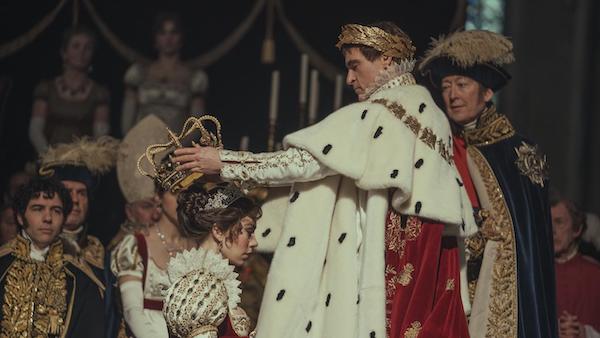
In 1799, Napoleon orchestrated a coup to make himself First Consul (head of government). Although this takeover was bloodless, it nevertheless carried the weight of military might: soldiers loyal to Napoleon brandishing bayonets followed him into the assembly hall, showing deputies what awaited them if they stood against him.
But Napoleon sought more and more power. Three years later, he declared his position as First Consul lifelong. And then, in 1804, he went one step further and made himself Emperor of France.
On December 2nd, 1804, he was crowned in a sumptuous ceremony at Notre Dame Cathedral. As the movie dramatizes, Napoleon – draped in finery and surrounded by loyal supporters – decided to place the crown on his head himself. This move was intended as a powerful symbol, to show how he’d achieved his dizzying political ascension under his own steam.
That point aside, the lavish ceremony had many similarities to the coronations of French monarchs of old. The following year, Napoleon made himself King of Italy and showered his close supporters with aristocratic titles.
Who was Napoleon’s wife, Joséphine?
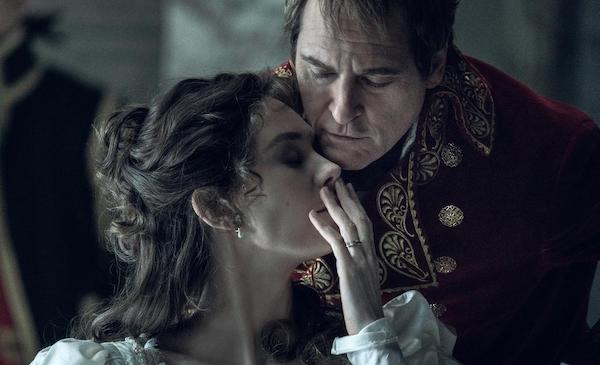
Although he was a savvy political operator and military genius, when it came to affairs of the heart Napoleon appeared less in control. When he was in his twenties, he met Joséphine de Beauharnais (1763–1814) – a glamorous widower six years his senior, who soon stole his heart.
Joséphine – born Marie-Josèphe Rose de Tascher de la Pagerie – was the daughter of a poor noble who engineered her marriage to the officer Alexandre de Beauharnais when she was just 15 years old. But when she moved to Paris to begin her life with him, she was bitterly disappointed: Alexandre was in love with another woman.
The pair had two children together, Hortense and Rose, but they never found happiness. In 1783, Joséphine separated from her husband and retired to a convent – but the French Revolution brought her back into high society. Her former husband, Alexandre – an outspoken Jacobin – was executed during the Terror. Joséphine was herself imprisoned, but luckily managed to avoid the guillotine.
After the Terror, in 1795 she met a promising young officer called Napoleon. In the film, during this fateful first meeting, she quips, “Has my life just changed?” Their relationship certainly transformed her life, with the two marrying in March 1796.
At the start of their relationship, Napoleon was infatuated with her – but his passion soured when he found out that Josephine was having an affair behind his back. In one letter, he told her “I don’t love you, not at all; on the contrary, I detest you.”
However, he chose to remain married to her, and in 1804 she was crowned Empress of France alongside him. She was at the heart of Napoleon’s court, entertaining foreign ambassadors and organising lavish events. But as the years passed, she failed to deliver the heir that Napoleon craved.
In 1810, he annulled their marriage and promptly re-married the 18-year-old Marie-Louise of Austria, who gave birth to his son, Napoleon II, the following year. But this wouldn’t be enough to secure his dynasty…
What was Napoleon's downfall?
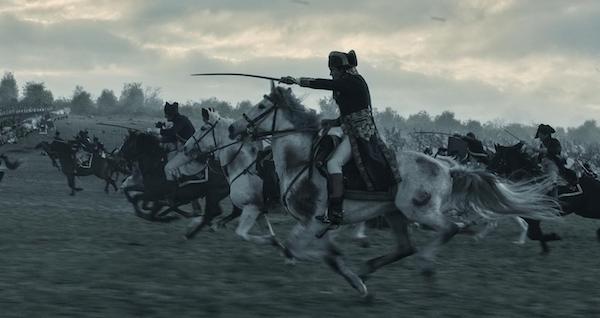
As Napoleon continued to build his empire, other European powers looked on with alarm – most notably Britain. But the French emperor’s winning streak eventually ran out. In 1812, he sought to “crush” Russia and prevent them from siding with Britain against him.
Taking a whopping 600,000 troops on the campaign that summer, his grand plans quickly unravelled – and the fallout was deadly. After a disastrous campaign that saw them lose around 400,000 men, the French army limped out of the country in November.
Back in France, the tide was turning against Napoleon. On April 6th, 1814, he was forced to abdicate and was exiled to the island of Elba. But that was far from the end of his story.
In February 1815, he managed to return to the mainland and swept to power once more, in a second reign now called the Hundred Days. With Napoleon back on the throne, Britain, Prussia, Russia and Austria banded together against the renewed French threat.
Napoleon’s final reckoning came in June 1815 at the Battle of Waterloo. His 72,000 soldiers faced off against 68,000 troops, led by the Duke of Wellington. Although relatively evenly matched, Napoleon made several crucial errors – such as delaying his attack until noon – and was ultimately defeated.
Four days later, Napoleon gave up his crown once more – and would never regain it. He was exiled to the remote island of St Helena, and eventually died there on May 5th, 1821, lying on a cold iron camp bed.
Napoleon is released at Cineworld on November 22nd. Click the link below to book your tickets.
Rhiannon Davies is the acting podcast editor for HistoryExtra, the award-winning history podcast from the makers of BBC History Magazine. To find out more about the real history of Napoleon, visit HistoryExtra by clicking here.
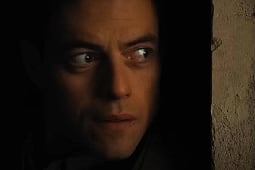


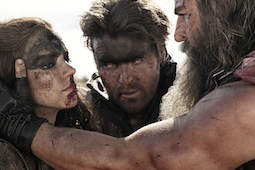





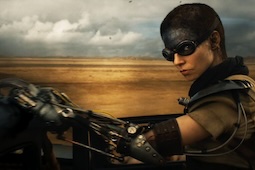




.jpg)
.png)



